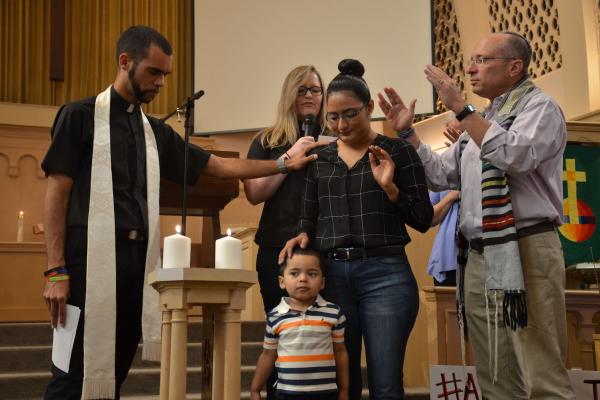Aug 9, 2018
When Velasquez came to the border, she was taken to a detention center in Texas where she was held for a month and a half before making her way to Colorado. She met her husband in Colorado and the couple have three children who are American citizens. She lost a request for asylum in 2016 and was given a year-long stay of deportation in the U.S. Immigration officials indicated that they would not renew her stay of deportation any longer. So instead of going to her Aug. 9, 2017 check in with ICE, Velasquez and her family went to Park Hill and Temple Micah
Read the Full Article

Already a subscriber? Login
